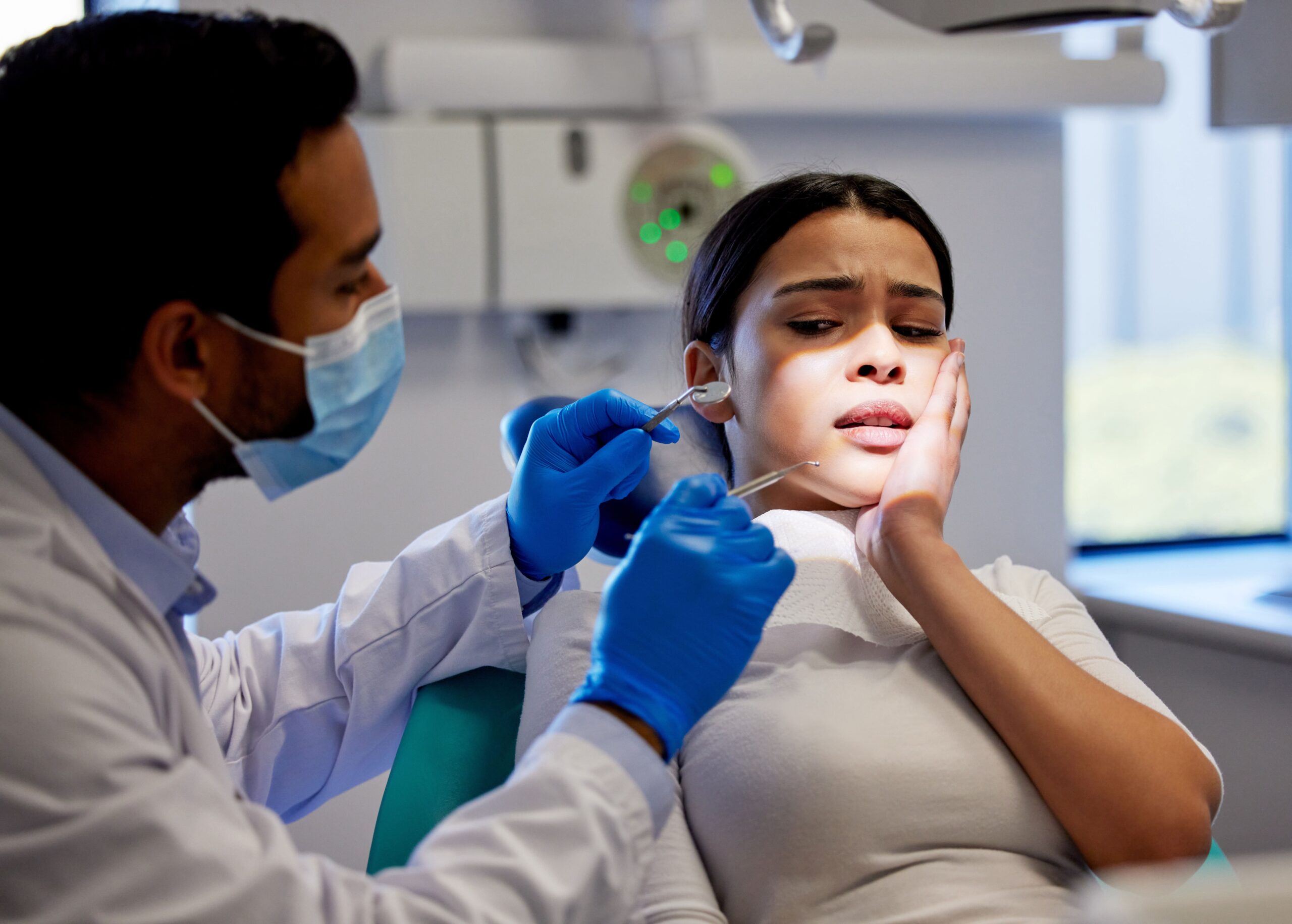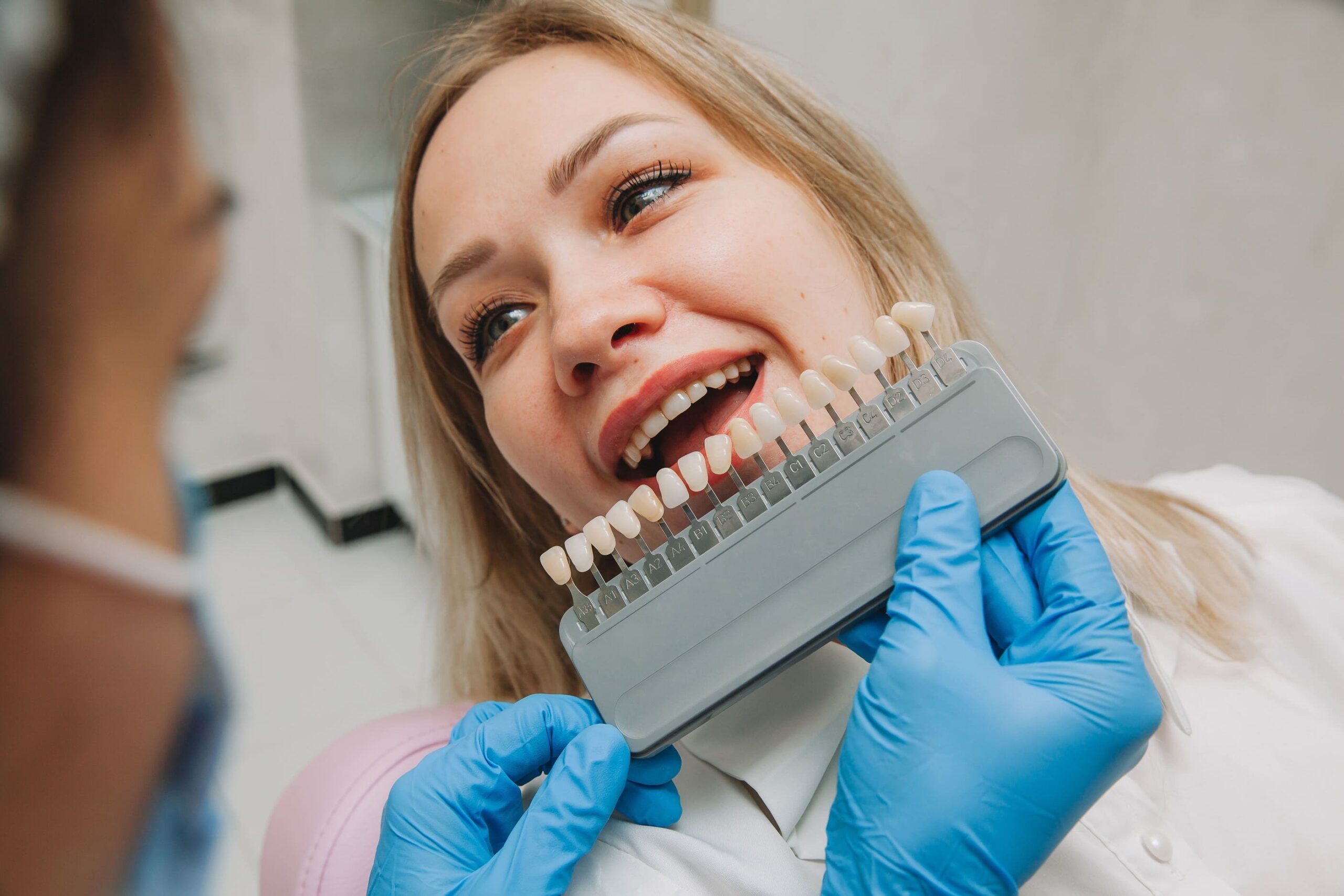Saliva is often an unsung hero when it comes to oral health. This clear, watery…

How Good Dental Habits Contribute to Overall Health Throughout Life’s Stages
Establishing good oral care habits is crucial for maintaining overall health throughout all life stages. From childhood to the senior years, taking care of your teeth and gums not only prevents dental issues but also contributes to your overall well-being. At the Center for Restorative, Cosmetic, and Implant Dentistry (CRCID), we know that lifelong dental care is the foundation for a healthy body, and it all starts with the habits we develop early on.
The Foundation of Lifelong Dental Care Begins in Childhood
Instilling robust dental care habits in children is the foundation of a healthy lifestyle that spans decades. From the moment the first tooth erupts, parents and caregivers have a golden opportunity to instill practices that become second nature, ensuring their children’s smiles remain vibrant and healthy. Early education on the importance of brushing twice a day with fluoride toothpaste, the correct way to floss, and the significance of minimizing the intake of sugary foods and drinks forms a solid base upon which lifelong dental health is built.
Introducing children to the CRCID dentist’s office early—not just when problems arise—helps to normalize dental visits, making them less intimidating and more a part of regular health maintenance. This acclimatization to the dental environment and the professionals who work there plays a critical role in reducing dental anxiety, which, if unchecked, can deter individuals from seeking necessary care later in life.
Creative methods such as using toothbrushes and toothpaste designed for children, incorporating educational games about dental health, and setting a family routine for oral hygiene practices can make dental care fun and engaging. Rewarding positive dental habits reinforces their importance, making it more likely these behaviors will stick through the teenage years and into adulthood.
Crafting a narrative around dental care that includes stories of healthy teeth and gums, explaining in age-appropriate language how good dental habits impact their entire body, encourages children to view oral hygiene as an integral part of their overall health. By starting these conversations and habits early, we set children on a path where dental health is not an afterthought but a fundamental aspect of their well-being.
Navigating the Dental Care Needs of Teenagers
During the teenage years, the body undergoes significant transformations, including hormonal shifts that can influence oral health. This period of life introduces unique challenges and opportunities in dental care. Teenagers, embracing a newfound independence, must carry forward the dental care habits established in childhood, adapting and reinforcing these practices as they mature. The surge in hormonal changes makes this demographic particularly susceptible to conditions like gingivitis, necessitating a vigilant approach to oral hygiene.
At this stage, dietary choices often become more autonomous, with an increased likelihood of consuming sugary snacks and beverages that can worsen dental decay. It is imperative for teens to understand the impact of their choices and the importance of maintaining a balanced diet for their dental and overall health. Brushing and flossing twice daily continue to be the cornerstone of good oral hygiene, but it’s also a critical moment to introduce or reinforce the use of fluoride mouthwash, further protecting against tooth decay.
Regular dental cleanings and check-ups at CRCID transition into a more collaborative process during these years. Dental professionals play a key role in educating teenagers about the consequences of neglecting dental care, including the potential for wisdom teeth issues and the importance of wearing protective mouthguards during sports. Encouraging teens to take ownership of their dental health by scheduling their own appointments and discussing their oral hygiene concerns openly with their dentist fosters a sense of responsibility that paves the way for a lifetime of healthy habits.
As teenagers navigate the complexities of their dental care needs, the support and guidance from both parents and dental professionals are crucial in reinforcing the importance of diligent care, laying a solid foundation for optimal oral health into adulthood.
Maintaining and Enhancing Dental Health in Adulthood
Adulthood brings with it a myriad of responsibilities, and amidst these, the significance of oral care must not be neglected. It is a time when the effects of lifestyle choices—ranging from dietary habits to stress management—start manifesting in one’s dental health. Adults face unique challenges such as the onset of periodontal (gum) disease, which has been linked to systemic health issues like cardiovascular disease and diabetes.
Continuing the practice of brushing twice daily with fluoride toothpaste and flossing becomes even more pivotal. This period also calls for a heightened awareness of the impact of stress on oral health, including conditions like bruxism (teeth grinding), which not only damages teeth but can also lead to temporomandibular joint (TMJ) disorders. Addressing such issues promptly by consulting dental professionals can mitigate long-term damage.
Regular dental check-ups at CRCID move beyond mere cleaning appointments to essential interactions that provide insight into one’s overall health status. These visits allow for the early detection of problems such as cavities, enamel wear, and even oral cancer. Professional cleanings are not just about maintaining a bright smile; they are crucial in removing plaque and tartar build-up that brushing alone cannot tackle.
Adulthood is the stage to fortify the dental care foundation laid in earlier years. It’s about adapting and evolving one’s oral care routine to meet changing health needs and ensuring that dental health continues to be a priority, reflecting one’s commitment to maintaining overall wellness.
Special Considerations for Oral Care in Senior Years
Navigating the senior years brings its own set of oral care challenges and priorities. As we age, our mouths often become battlegrounds against conditions like dry mouth, often exacerbated by medications commonly prescribed to seniors. This decrease in saliva flow can lead to an increased risk of cavities and gum disease, underscoring the need for meticulous oral hygiene and perhaps an adjustment in dental care products, such as those designed to combat dryness.
Additionally, the wear and tear of decades can manifest as receding gums and tooth loss, altering the landscape of one’s oral cavity and consequently, the approach to dental care. The use of fluoride toothpaste and gentle brushing techniques become paramount to protect the delicate oral tissues and preserve dental prosthetics, if any.
For those with arthritis or other conditions that impair manual dexterity, the adoption of electric toothbrushes or flossing aids can ensure that oral hygiene practices do not fall by the wayside. It’s these adaptive strategies that maintain the effectiveness of one’s dental care routine in the face of physical challenges.
Proactive communication with the dental professionals at CRCID is essential during this life stage. Regular dental visits not only serve to address the complexities introduced by aging but also offer a gateway to customize oral health practices to an individual’s changing needs. Engaging with these considerations ensures that oral care continues to play a crucial role in the broader spectrum of health and quality of life for seniors.
The Link Between Oral Health and Whole-Body Wellness
Oral health has been proven to have a significant effect on the body’s overall health. Emerging research underscores how gum disease, characterized by inflammation and bacterial growth, can play a role in the exacerbation of cardiovascular conditions, influencing factors such as heart disease and stroke. Similarly, the presence of oral infections has been associated with challenges in managing diabetes, as these infections can affect blood sugar control, creating a cyclical challenge in maintaining overall health.
Moreover, the health of our mouth can offer early indicators of osteoporosis, with jawbone density mirroring the condition of bones elsewhere in the body. Recent studies also hint at a link between periodontal disease and Alzheimer’s, suggesting that the bacteria responsible for gum disease might contribute to the progression of this neurodegenerative condition.
This complex web of connections illuminates the importance of diligent oral hygiene not merely for the sake of a radiant smile but as a fundamental component of our general health. The mouth serves as a gateway, and its condition can reflect or influence the state of our entire organism, underscoring the imperative to nurture and maintain oral health with the same vigilance applied to other aspects of our well-being.
The Importance of Routine Dental Visits and Timely Treatment
Embracing regular dental appointments at CRCID is a cornerstone of preventative healthcare, serving not only as a defensive measure against dental ailments but also as an avenue for professional oversight of one’s oral hygiene practices. These visits facilitate early detection and intervention, ensuring minor issues can be addressed before escalating into more severe complications.
Engaging in consistent dialogue with dental professionals enhances one’s understanding of personal oral health needs, allowing for tailored advice that evolves alongside changes in health, lifestyle, and age. Swift action towards treatment at the onset of symptoms plays a pivotal role in circumventing the progression of conditions that could otherwise necessitate complex procedures or lead to systemic health concerns. Ultimately, a proactive stance on dental care underscores a commitment to comprehensive wellness, fortifying the foundation for a healthier future.
Our caring team at the Center for Restorative, Cosmetic, and Implant Dentistry is here to help patients in the Chesapeake and Virginia Beach, VA areas form and keep good oral care habits for life. Contact us today to make an appointment for a consultation. Your dental health and comfort are our priorities.


